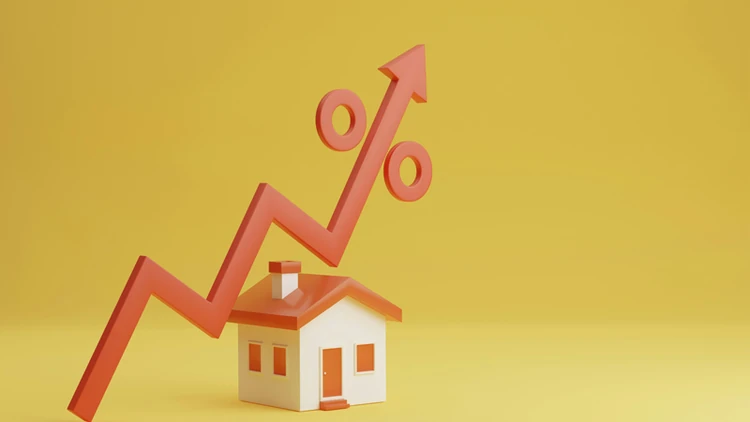Home loans are only indirectly affected by the Federal Reserve

Whats wrong with this picture, prospective homebuyers may be asking. The Federal Reserve cut interest rates by .50% but mortgage rates have risen for the last three weeks.
Freddie Mac reports the average 30-year fixed-rate mortgage got as low as 6.09%, but rose to nearly 6.5% this week. The confusion is understandable but its an apples to oranges comparison.
When the Fed cut the federal funds rate, that lowered borrowing costs for banks. It affected banks prime lending rate, the rate on car loans and the rates on credit cards, but not mortgages.
Mortgage rates are linked to the interest rate the U.S. Treasury pays to investors who buy its 10-year bond. And lately, that rate has been going up, rising above 4%.
Bond yields are rising, dragging mortgage rates with them, for several reasons. The September jobs report, showing a huge increase in hiring, suggests the economy is stronger than previously thought.
A strong economy could mean that investment in 10-year bonds will decline since investors might think stocks are a better place to put money. Less money flowing into bonds means the government must pay a higher interest rate to attract investors, leading to higher mortgage rates.
On a historical basis, a 6.5% mortgage rate is not excessively high. Actually, its normal. The average mortgage rate in the United States from 1990 to 1999 was 8.12%.
Its not just mortgage rates
The reason homes are unaffordable is the price. During the pandemic, when mortgage rates fell below 3%, homeowners raised the price of their homes because they could get it.
In 2019, the median home price was around $258,000. Now, its over $400,000, a huge increase in five years.
A 6.5% mortgage on a $258,000 home produces a fairly affordable monthly payment. It might not be affordable for a lot of people when the home costs $400,000.
So, why havent home prices come down? They have in certain markets, but a widespread loss in home value could mean millions of recent homebuyers would lose equity and could even end up underwater.
That could happen but the housing market experts weve talked to dont see that happening, at least not anytime soon. The reason is supply and demand. There is still a shortage of single-family homes and thats keeping prices stable.
Photo Credit: Consumer Affairs News Department Images
Posted: 2024-10-18 19:14:04



















